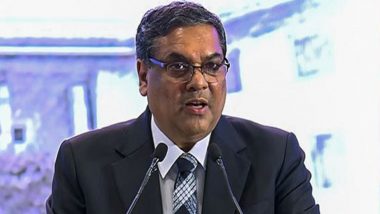New Delhi, March 9: In its landmark decision on euthanasia, the Supreme Court on Friday legalised passive euthanasia and said that individuals can decide when to give up the life support. Approving the will to die, the Apex Court said that the dignity in death is a facet of right to life. The Supreme Court said that 'living will' be permitted but with the permission from family members of the person who sought passive Euthanasia and also a team of expert doctors who say that the person's revival is practically impossible.
A five-judge Constitution bench of the Supreme Court, headed by Chief Justice of India Dipak Misra passed the order allowing passive Euthanasia with guidelines. With the latest decision, the SC approved living will for terminally ill patients. The Supreme Court recognised the right to die with dignity.
Living will is a written document that allows a patient to give explicit instructions in advance about the medical treatment to be administered when he or she is terminally ill or no longer able to express informed consent.
Passive euthanasia is a condition where there is withdrawal of medical treatment with the deliberate intention to hasten the death of a terminally-ill patient. A five-judge constitution bench headed by Chief Justice Dipak Misra had on October 11 last year reserved its verdict on the plea.
The bench, also comprising justices A K Sikri, A M Khanwilkar, D Y Chandrachud and Ashok Bhushan, had indicated during the hearing that it might recognise the execution of ‘living will’ in cases of passive euthanasia, as right to die peacefully is part of fundamental right to life under Article 21 of the Constitution.
Article 21 provides that “no person shall be deprived of his life or personal liberty except according to procedure established by law.”
The apex court, however, had observed that there should be adequate safeguards and implementation of living will would be subject to medical board’s certifying that the patient’s comatose state is irreversible.
The top court had in 2011 recognised passive euthanasia in Aruna Shanbaug’s case by which it had permitted withdrawal of life-sustaining treatment from patients not in a position to make an informed decision.
(The above story first appeared on LatestLY on Mar 09, 2018 11:10 AM IST. For more news and updates on politics, world, sports, entertainment and lifestyle, log on to our website latestly.com).













 Quickly
Quickly




















